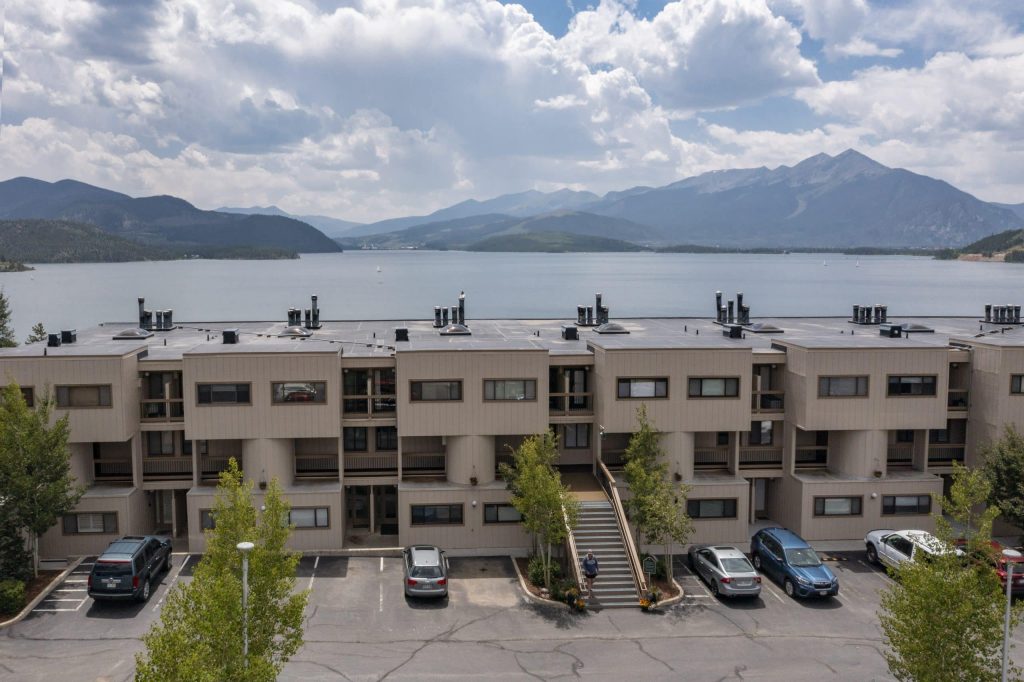New short-term rental organization wants to address regulatory issues in Colorado’s resort towns
With not-so-optimistic national tourism trends and upcoming lodging legislation, the Colorado Short-Term Rental Alliance aims to advocate for the short-term rental community.

Tripp Fay/For the Summit Daily News
The Colorado Short-Term Rental Alliance, a nonprofit volunteer organization known as COSTRA, officially launched in September, promising to be a unified voice in advocating for the state’s short-term rental community.
The alliance was created through a merger of various existing organizations, like Mile High Hosts and the Colorado Lodging Resort Alliance. Julia Foster, the new executive director of COSTRA, said the newly formed organization will focus on addressing legislative and regulatory issues burdening new and old rental property owners and providing education for property managers in Colorado.
The Colorado Lodging Resort Alliance already has a positive rapport with short-term rental owners across the state, particularly through their efforts fighting the state property tax bill in 2024 and their discussions surrounding the County Lodging Tax Expansion bill. Still, Foster said the organization chose to change its name following the merger to better fit the people it represents.
COSTRA collaborates with stakeholders, online travel agencies like Expedia and Airbnb and legislators at the state Capitol. The alliance currently has chapters in Denver and Summit County, with more in the works for Steamboat and Telluride.
In a Sept. 9 webinar introducing the association and its goal for the upcoming year, several Colorado leaders in tourism and the rental industry brought forth discussions of evolving tourism trends and upcoming short-term rental legislation.
Short-term rentals are getting less business from international travelers
Tourism is a significant contributor to Colorado’s economy. In 2024 alone, visitor expenditure in the state reached a record $28.5 billion — an increase of 0.5% over 2023. Tourism generated $1.9 billion in local and state tax revenues the same year, an average of $800 in tax relief per Colorado household, according to Colorado Tourism Office Director Tim Wolfe. Tourism also added 3,720 to the state in 2024.
International tourism to Colorado is wavering, however, which is bad news for the short-term rental community.
“International travel is very important because those travelers spend five times the amount of a domestic traveler,” Wolfe said during the webinar. “They stay longer. It’s less turnover in your units, which actually can save you on cleaning fees by having somebody stay longer.”
International skier visits, which draw a significant portion of tourism to Colorado, have been on the decline since 2015, rebounding slightly after the COVID-19 pandemic. Accompanying this drop in international tourism is a year of softer hotel occupancies.
“As hotel occupancies are softer, that’s going to actually increase the competition for your short-term rentals,” Wolfe said. “The hotels are going to be trying to drive occupancies as well.”
Occupancy for short-term rentals is also off to a slower start than previous years, reaching 59% in July compared to 63% in July 2023. Colorado Direct Source Short Term Rental Occupancy is down 1.8% year-over-year, according to data from the Colorado Tourism Office.
“The good news is that the forecast for Airbnb and VRBO is looking pretty good through October, but it’s still kind of early in the booking window,” Wolfe said.
Colorado’s domestic market share of visitors has also been declining since before the pandemic. Although the drop in its share compared to the U.S. has slowed through 2025, it has not improved.
State tax, Wolfe said, is not a deterrent for tourism to the state, since Colorado’s state tax is the 47th lowest in the country at 2.9%. Hotel taxes and short-term rental taxes, however, are on the rise in individual Colorado counties. Steamboat Springs, for example, has a classic short-term rental state sales tax of 20.4%. Aspen’s is 21.3% compared to 11.3% for hotels.
‘That’s a little bit scary’: COSTRA prepares for upcoming legislation hurdles
With the surge in popularity of short-term rentals in Colorado, leaders at the state and local levels have been asked to weigh their economic benefits to homeowners against created challenges like housing shortages and rising rents. Several Colorado jurisdictions have implemented regulations on short-term rentals following House Bill 1117, which allowed for local government control in 2021.
At the state level, there are multiple bills that COSTRA has identified as being potentially harmful to short-term rental owners, despite support from both Democratic and Republican lawmakers.
One of last year’s notable proposals was the Colorado Association of Ski Towns’ vacancy tax proposal, which aimed to address the affordable housing crisis in both mountain and urban areas by allowing local governments to put vacancy tax proposals on their ballots, or tax empty homes. The proposal was altered before the 2025 legislative session to exclude short-term rentals after receiving pushback from the lodging industry, but it did not advance.
One bill expected to be introduced in January is the excise tax proposal, which would allow for counties and statutory cities to create an excise tax on any industry. Jaclyn Terwey, regional government affairs manager for Expedia group, said during the webinar that the bill did not get introduced last year thanks to the local efforts of short-term rental groups, though it will soon be making a comeback.
“We are very nervous about this excise tax proposal, rightfully so,” Foster said. “With this type of proposal with no ceiling, county commissioners could literally promote an excise tax on whatever they want for whatever amount they choose. That’s a little bit scary.”
Although Senate Bill 33 — the 2024 property tax bill which would have changed the property tax on short-term rentals from residential rates to commercial rates — did not see a comeback this year, Terwey said Colorado’s current budget hole might have legislators looking at short-term rentals for ways to fill those gaps.
“That year, we felt like they were only looking at short term rentals to fill the gaps in budget holes,” she said. “I think that it’s going to be a lot of different industries and a lot of different groups that are going to be helping plug some different areas. … So while I am hopeful that property taxes are not brought up, I would not be surprised if that becomes a conversation this year at the state level.”
To become a member of the Colorado Short-Term Rental Alliance, visit ColoradoSTRA.org/join. New members can use the code “COSTRA20” for 20% off their first year of membership.

Support Local Journalism

Support Local Journalism
Readers around Glenwood Springs and Garfield County make the Post Independent’s work possible. Your financial contribution supports our efforts to deliver quality, locally relevant journalism.
Now more than ever, your support is critical to help us keep our community informed about the evolving coronavirus pandemic and the impact it is having locally. Every contribution, however large or small, will make a difference.
Each donation will be used exclusively for the development and creation of increased news coverage.










